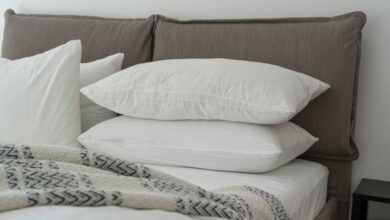What Are the Best Affordable Snoring Remedies
Snoring is a common issue that affects millions of people worldwide. It can disrupt sleep for both the snorer and their partner, leading to fatigue and irritability. While there are expensive treatments available, many effective and affordable remedies can help alleviate snoring. Here’s a look at some of the best options that won’t break the bank.
Lifestyle Changes
One of the simplest ways to combat snoring is by making adjustments to your lifestyle. Weight management is crucial; excess weight, especially around the neck, can contribute to airway obstruction. Adopting a balanced diet and engaging in regular exercise can lead to weight loss, which may significantly reduce snoring.
Additionally, establishing a consistent sleep routine can help. Going to bed and waking up at the same time every day promotes better sleep quality. Also, consider sleeping on your side instead of your back. When you lie on your back, your tongue and soft palate can collapse to the back of your throat, obstructing airflow. Using a body pillow can encourage side sleeping and minimize snoring.
Nasal Strips and Dilators
Nasal strips are an inexpensive and effective solution for those whose snoring is related to nasal congestion. These adhesive strips, placed on the bridge of the nose, physically open the nostrils to improve airflow. If nasal passages are blocked, simply breathing through the nose can become difficult, leading to snoring.
Nasal dilators, which are small devices inserted into the nostrils, can also help by keeping the nasal passages open. Both options can be particularly useful for allergy sufferers or those with colds, as they help reduce the likelihood of snoring caused by congestion.
Humidifiers
Dry air can irritate the throat and nasal passages, leading to snoring. Utilizing a humidifier in your bedroom adds moisture to the air, which can make breathing easier and reduce snoring. This is especially beneficial during the winter months when indoor heating can dry out the air. Ensure the humidifier is clean to prevent mold and bacteria buildup, which can worsen respiratory issues.
Essential Oils
Incorporating essential oils into your bedtime routine can also be a delightful and effective remedy. Oils like eucalyptus and peppermint can relieve nasal congestion and promote clearer breathing. Adding a few drops to a diffuser or applying them topically (diluted with a carrier oil) can create a soothing environment that encourages better sleep and reduces snoring.
Allergy Management
For many, allergies are a significant contributor to nighttime snoring. If you suspect allergies are causing your snoring, consider taking steps to manage them. Over-the-counter antihistamines can help alleviate symptoms, while regular cleaning can eliminate dust mites and pet dander from your sleeping environment. Investing in hypoallergenic bedding can also make a difference.
Stay Hydrated
Dehydration can lead to the secretion of thick mucus, which can exacerbate snoring. Ensuring you drink enough water throughout the day can help keep mucus thin and promote better airflow during sleep. Aim for at least eight glasses of water daily, and consider a warm cup of herbal tea before bed to encourage relaxation.
Throat Exercises
Strengthening the muscles in your throat can also help reduce snoring. Simple throat exercises, such as singing, can tone the muscles and prevent them from collapsing during sleep. Other exercises include repeatedly pronouncing vowel sounds and sliding your tongue back and forth. While it may seem unconventional, a few minutes of practice each day can lead to noticeable improvements.
Final Thoughts
Snoring can be a frustrating issue, but there are numerous affordable remedies available that can make a significant difference. From lifestyle changes and nasal strips to essential oils and hydration, these remedies can help provide relief without requiring a hefty financial investment. By incorporating these strategies into your daily routine, you can improve not only your sleep quality but also your partner’s, paving the way for a more restful night.







